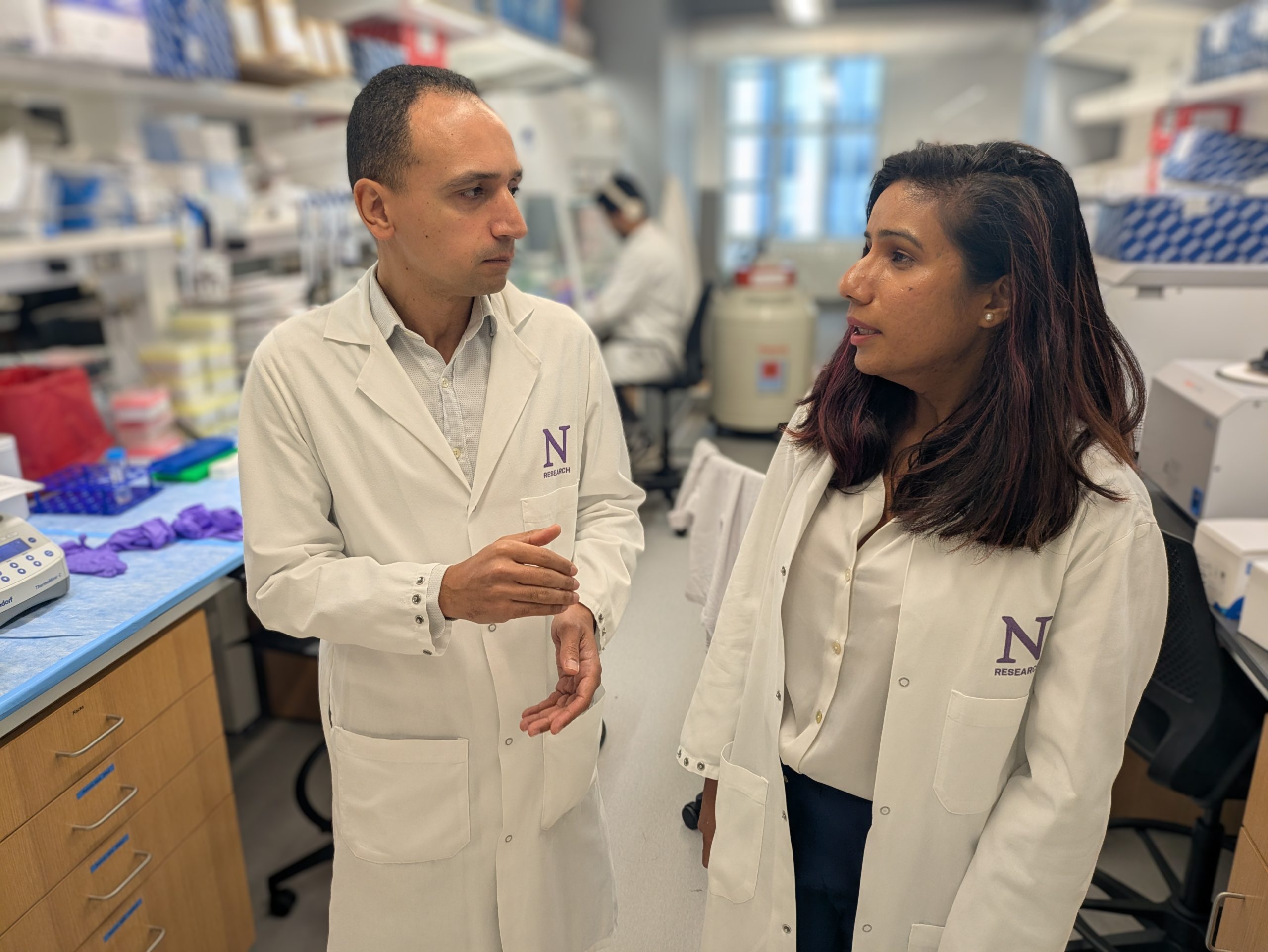Author: kwm107
-

Feinberg Art Fair Highlights Creative Talents
Medical students, trainees, faculty and staff gathered on November 17 to recognize and celebrate the creative talents of the Feinberg community at the Feinberg Art Fair, now in its second year.
-

New Study Could Help Your Doctor Make Smarter Treatment Decisions
By presenting just the “sweet spot” of treatment alternatives in an electronic health record system, physicians were more likely to choose a high-quality alternative, according to a recent study.
-

Six Strategies to Reinvigorate the Doctor-Patient Bedside Encounter
A new report published in NEJM provides practical strategies to reinvigorate a waning culture of bedside medicine, giving clinicians and medical educators guidance on how to better teach and practice essential clinical skills.
-

Genetic Testing Trifecta Predicts Risk of Sudden Cardiac Death and Arrhythmia
Scientists have developed a more precise genetic risk score to determine whether a person is likely to develop arrhythmia, which can lead to serious conditions such as atrial fibrillation or sudden cardiac death.
-

New Antibody Therapy Reawakens Immune System to Fight Pancreatic Cancer
A new study shows that pancreatic tumors use a sugar-based disguise to hide from the immune system, and Northwestern scientists have also created an antibody therapy that blocks the “don’t-attack” signal.
-

A New Clue to ALS and FTD: Faulty Protein Disrupts Brain’s ‘Brake’ System
A new Northwestern study has uncovered how a key disease protein drives overactive nerve cells in neurodegenerative diseases like ALS and frontotemporal dementia.
-

New Study Gives Answers, Drug Targets for Chronic Lung-transplant Rejection
A new Northwestern Medicine study has found that, following transplant and in chronic disease states, abnormal cells emerge and “conversations” between them drive the development of transplant rejection.
-

Medicaid Billed for More than Half of U.S. Hospital Costs From Gun Injuries
The initial hospital treatment of firearm injuries costed an estimated $7.7 billion between 2016 and 2021, with the largest share falling on urban trauma center hospitals that serve the highest proportion of Medicaid patients, according to a new study.
-

Bass Elected to the National Academy of Medicine
Joseph Bass, MD, PhD, the Charles F. Kettering Professor of Medicine, has been elected to the National Academy of Medicine for his foundational work in expanding the field of circadian mechanisms in metabolic health and disease.
-

AI Models Predict Sepsis in Children, May Enable Preemptive Care
Northwestern scientists have developed and validated AI models that accurately identify children at high risk for sepsis within 48 hours, so they can receive early preemptive care.






